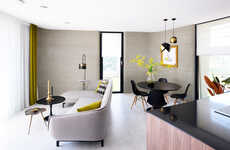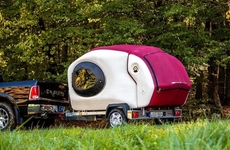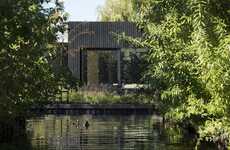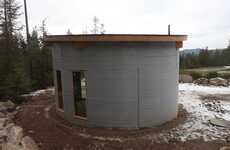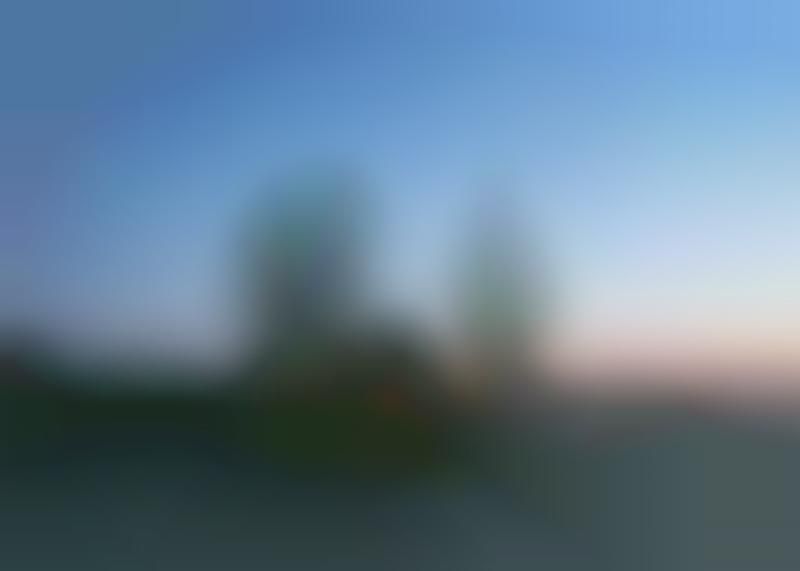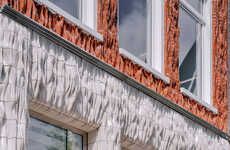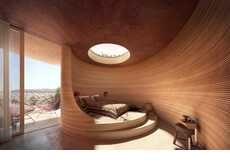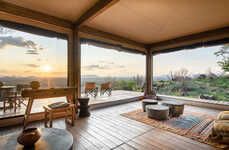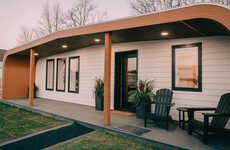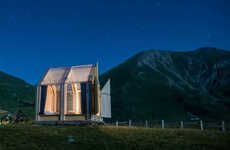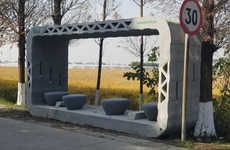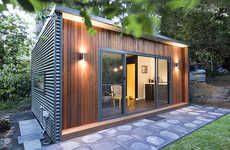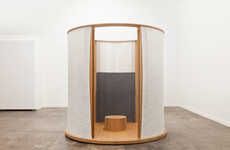
The Designers of This Cabin are Inviting People to Stay Overnight
Mishal Omar — August 30, 2016 — Eco
References: dusarchitects & dezeen
Dutch design studio 'Dus Architects' has created a 3D-printed urban cabin that is situated in a public place overlooking the Amstel river in Amsterdam.
The unique project comes as a response to the issues that arise in environmental crises and in situations where temporary housing is needed. The textured structure is made from a sustainable bio-plastic and once it is no longer needed, it can be destroyed and the materials are reusable. The unique project is allowing guests to stay overnight in an attempt to test and reveal its ability to function as a livable structure.
This small 3D-printed urban cabin works as a potential solution in emergency situations where people are in need of a temporary shelter -- making it especially useful for refugee camps and people displaced during natural disasters.
The unique project comes as a response to the issues that arise in environmental crises and in situations where temporary housing is needed. The textured structure is made from a sustainable bio-plastic and once it is no longer needed, it can be destroyed and the materials are reusable. The unique project is allowing guests to stay overnight in an attempt to test and reveal its ability to function as a livable structure.
This small 3D-printed urban cabin works as a potential solution in emergency situations where people are in need of a temporary shelter -- making it especially useful for refugee camps and people displaced during natural disasters.
Trend Themes
1. 3d-printed Urban Cabins - The trend of 3D-printed urban cabins presents disruptive innovation opportunities for temporary housing solutions in emergency situations.
2. Sustainable Bio-plastic - The trend of using sustainable bio-plastic in construction materials offers disruptive innovation opportunities for eco-friendly and reusable structures.
3. Testing Livability of 3d-printed Structures - The trend of allowing guests to stay overnight in 3D-printed structures creates disruptive innovation opportunities for assessing the functionality of these buildings as livable spaces.
Industry Implications
1. Construction - The construction industry can explore disruptive innovation opportunities by incorporating 3D printing technology to create temporary housing solutions.
2. Plastics - The plastics industry can seize disruptive innovation opportunities by developing sustainable bio-plastic materials for construction purposes, addressing environmental concerns.
3. Hospitality - The hospitality industry can tap into disruptive innovation opportunities by exploring the potential of 3D-printed structures as alternative accommodation options for guests.
3.9
Score
Popularity
Activity
Freshness


